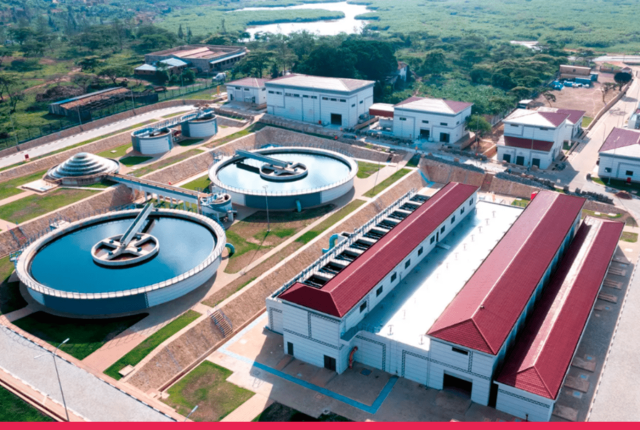
Building the Legal and Regulatory Foundation for Successful PPPs in Africa
Introduction
Public-Private Partnerships (PPPs) are instrumental in bridging Africa’s infrastructure gap and driving economic development. However, the success of PPPs heavily depends on a robust legal and regulatory framework that ensures transparency, investor confidence, and long-term project sustainability. A well-structured PPP legal framework fosters private sector participation, mitigates risks, and enhances governance.
This article explores the key components of a strong PPP legal and regulatory foundation, highlights African countries that have made significant progress, and provides recommendations for policymakers to improve the PPP investment climate.
The Importance of a Strong PPP Legal Framework
PPPs involve complex contractual arrangements between governments and private sector entities. A well-defined legal framework ensures:
- Clear procurement processes that promote fair competition and efficiency.
- Investment protection to attract and retain private investors.
- Transparent governance to minimize corruption and ensure accountability.
- Efficient dispute resolution mechanisms to address conflicts in a timely manner.
- Regulatory stability to foster confidence among investors and lenders.
Key Elements of an Effective PPP Legal and Regulatory Framework
1. Clear and Transparent Procurement Processes
A strong PPP framework requires standardized procurement policies that promote open competition and value for money. Governments should establish dedicated PPP units that oversee procurement, ensuring:
- Competitive bidding procedures.
- Objective evaluation criteria.
- Public disclosure of project details.
Example: South Africa’s PPP framework includes a centralized process managed by the National Treasury, which enhances transparency and accountability.
2. Investment Protection and Risk Mitigation
Private sector investment in PPPs often involves long-term commitments, making legal safeguards essential. A solid legal framework should address:
- Guarantees for investor rights and protections against expropriation.
- Legal mechanisms for contract renegotiation due to unforeseen circumstances.
- Risk-sharing arrangements between the government and private partners.
Example: Kenya’s PPP Act provides legal guarantees that safeguard investors against arbitrary government actions, encouraging sustained private sector engagement.
3. Transparent and Accountable Governance
Governments must ensure PPP projects operate with integrity and public accountability. Best practices include:
- Establishing independent regulatory bodies to oversee compliance.
- Requiring regular reporting and auditing of PPP contracts.
- Encouraging citizen participation in project decision-making.
Example: Nigeria’s Infrastructure Concession Regulatory Commission (ICRC) enhances governance by ensuring transparency and regulatory oversight in PPP projects.
4. Effective Dispute Resolution Mechanisms
Legal uncertainties and contract disputes can derail PPP projects. Establishing clear dispute resolution mechanisms ensures:
- Access to international arbitration for foreign investors.
- Specialized courts or tribunals to handle PPP-related disputes.
- Alternative dispute resolution (ADR) frameworks for faster conflict resolution.
Example: Morocco’s PPP framework integrates international arbitration provisions, providing investors with confidence in contract enforcement.
5. Regulatory Stability and Policy Consistency
Frequent policy changes create uncertainty and discourage investment. Governments should:
- Develop long-term PPP policies aligned with national development plans.
- Ensure regulatory independence from political influence.
- Commit to honoring existing contracts and obligations.
Example: Rwanda’s consistent PPP policy, aligned with Vision 2050, has fostered investor confidence in infrastructure development projects.
African Countries Making Progress in PPP Frameworks
Several African nations have made strides in strengthening their PPP legal and regulatory environments. Here are a few standout examples:
South Africa
- Strong legal framework with clear procurement and regulatory oversight.
- National Treasury’s PPP Unit supports project implementation.
- Established guidelines for private sector participation.
Kenya
- PPP Act (2013) sets clear procurement and contract guidelines.
- Dedicated PPP Directorate enhances project development.
- LAPSSET Corridor Project leverages PPPs for infrastructure expansion.
Morocco
- Established a well-regulated PPP framework with investor-friendly provisions.
- Legal support for international arbitration in case of disputes.
- Focus on renewable energy and transportation infrastructure.
Nigeria
- Infrastructure Concession Regulatory Commission (ICRC) oversees PPP projects.
- Clear guidelines on project financing, procurement, and dispute resolution.
- Strong emphasis on transparency and public engagement.
Recommendations for Policymakers
To enhance Africa’s PPP investment climate, policymakers should consider the following actions:
- Develop Comprehensive PPP Laws: Ensure legal frameworks are clear, enforceable, and aligned with international best practices.
- Establish Independent Regulatory Bodies: Regulatory agencies should be free from political interference and focused on ensuring fair practices.
- Enhance Capacity Building: Train government officials and private sector players on PPP regulations and risk management.
- Streamline Procurement Processes: Reduce bureaucracy and implement digital procurement platforms to improve efficiency.
- Encourage Public Participation: Involve local communities and stakeholders in project planning and execution to enhance transparency and acceptance.
- Facilitate Access to International Arbitration: Ensure foreign investors can seek fair resolution mechanisms in case of disputes.
- Maintain Policy Consistency: Long-term economic planning should prioritize regulatory stability to attract sustained investment.
Conclusion
A well-defined and predictable legal and regulatory framework is the foundation for successful PPPs in Africa. By ensuring clear procurement rules, investment protection, governance transparency, and effective dispute resolution mechanisms, governments can attract private sector participation and drive sustainable infrastructure development. African countries making strides in PPP legal reforms serve as models for others looking to strengthen their investment climate.
To remain competitive in attracting infrastructure investment, African nations must continue refining their PPP frameworks and adopting international best practices. With the right legal and regulatory foundation, Africa can unlock the full potential of PPPs and drive economic transformation across the continent.
Call to Action: If you’re an investor or policymaker looking to engage in Africa’s PPP landscape, connect with AfriFund Capital to explore opportunities and insights on infrastructure financing and legal frameworks.



Leave a Reply